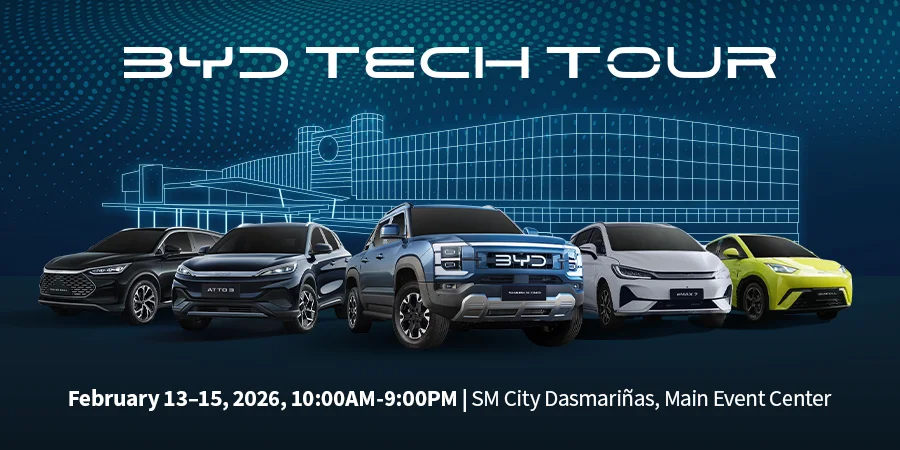A Turning Point in Sustainable Transportation
As global attention increasingly focuses on sustainability and the need to curb carbon emissions, the Philippines stands at a pivotal moment in the evolution of its transportation sector.
Growth of Electric Vehicle Registrations
Between 2014 and 2022, the Philippines’ Land Transportation Office (LTO) reported 9,666 electric vehicles registered, including 1,168 sport utility vehicles (SUVs) and utility vehicles (UVs), and 346 sedans. This data highlights the potential for electric vehicles (EVs) to play a more significant role in the future of mobility.
BYD Philippines: Leading the EV Adoption
While many car brands offer EV models, BYD Philippines is among the few companies providing battery-only vehicles. Their unique offerings position them as frontrunners in driving the adoption of EVs in the country.
Challenges and Opportunities Ahead
Despite commendable strides by BYD and other industry players, the road ahead presents both challenges and opportunities for EV adoption.
Understanding the Philippine EV Market and Infrastructure
As more consumers opt for environmentally friendly vehicles, electric car sales in the Philippines soared in the first quarter of 2023, reflecting a nearly six-fold increase during that period. Today, there are 36 electric car models available in the country for eco-conscious buyers.
While these numbers are promising, the Philippines is still in the early stages of EV adoption compared to countries like Norway, where 80% of vehicle sales in 2022 were electric, followed by Iceland and Sweden at 41% and 32%, respectively.
The significant jump in sales from 2022 to 2023 demonstrates growing interest among Filipinos in EVs. However, widespread adoption faces challenges such as cost, EV availability, charging infrastructure concerns, and the need for continued education on the benefits of electric cars.
Notably, more private companies in Metro Manila are embracing the EV wave, with corporate giants offering charging stations in their parking areas for on-the-go charging.
Policies and Initiatives Supporting EVs in the Philippines
Electric Vehicle Industry Development Act (EVIDA Law)
At the forefront of the Philippines’ commitment to sustainable transportation is the Electric Vehicle Industry Development Act (EVIDA Law). This law provides a legal foundation for EV policies, outlining incentives and benefits for manufacturers, importers, and users of electric vehicles.
It offers tax incentives and exemptions to promote local production and use of electric vehicles, signaling an intent to foster the EV market. For instance, importing EVs can benefit from incentives under the Tax Reform for Acceleration and Inclusion (TRAIN) Law. Owners of fully battery-operated vehicles also enjoy a 100% excise tax exemption.
Comprehensive Roadmap for the Electric Vehicle Industry
The Department of Energy (DOE) has outlined the government’s dedication to a robust and sustainable EV ecosystem in its Comprehensive Roadmap for the Electric Vehicle Industry. As of May 2023, this roadmap details strategies and action plans to promote energy-efficient and environmentally friendly transportation.
The roadmap includes the DOE’s goal for the Philippines to produce and export EVs by 2040 and supports battery research and development to encourage innovation for a brighter EV future.
Public Utility Vehicle Modernization Program
Aligned with broader government goals, the Public Utility Vehicle Modernization Program (PUVMP) is a transformative initiative aimed at overhauling the country’s public transportation system. This program encourages the replacement of old, inefficient vehicles with modern, environmentally friendly alternatives, including electric vehicles.
By integrating EVs into public transportation, the PUVMP not only reduces greenhouse gas emissions but also enhances the overall quality and safety of public transit in the Philippines.
Explore BYD’s Electric Vehicle Lineup
Discover the range of BYD electric vehicles available in the Philippines:
Visit BYD Cars Philippines or contact your nearest BYD dealership to schedule a test drive and experience the future of mobility today.





